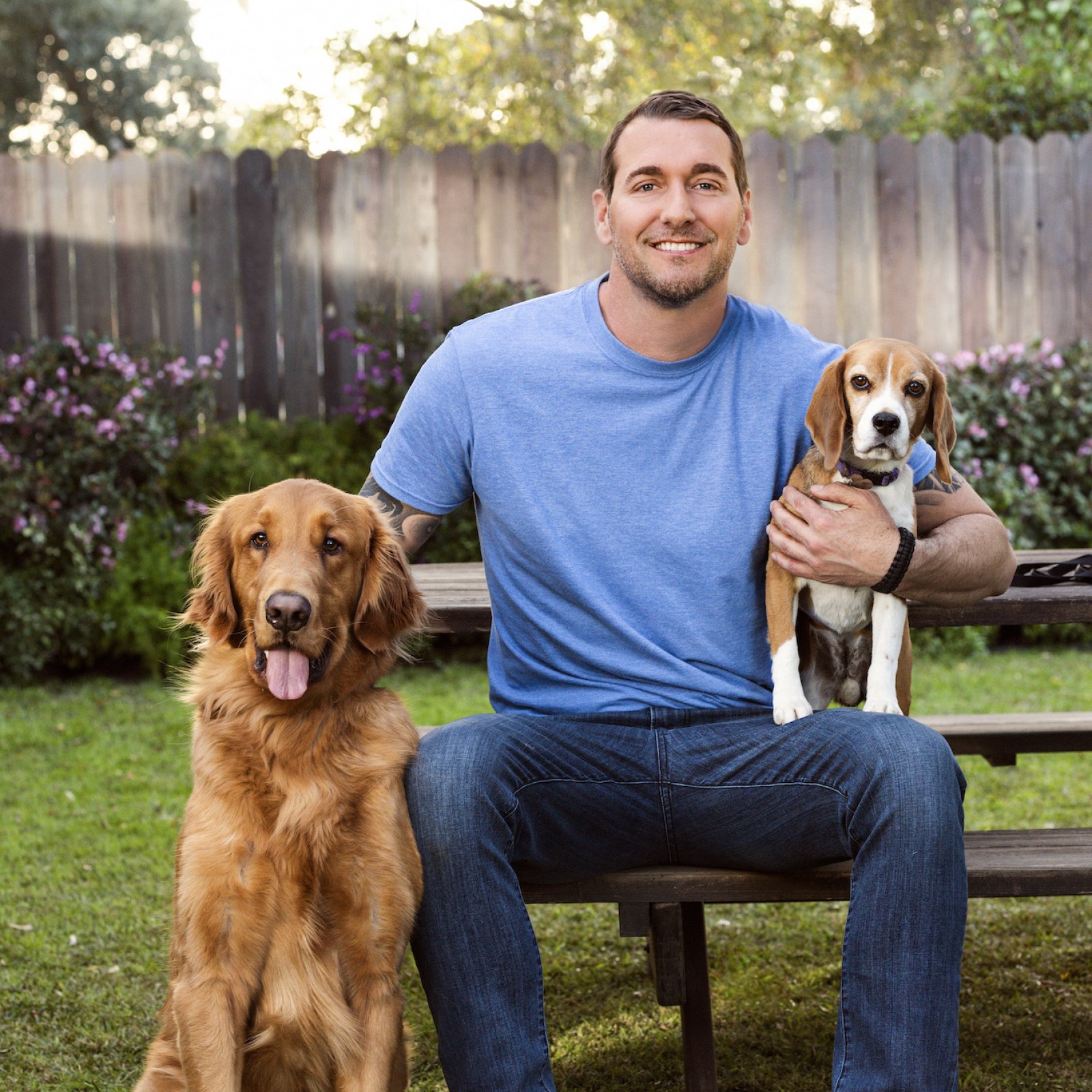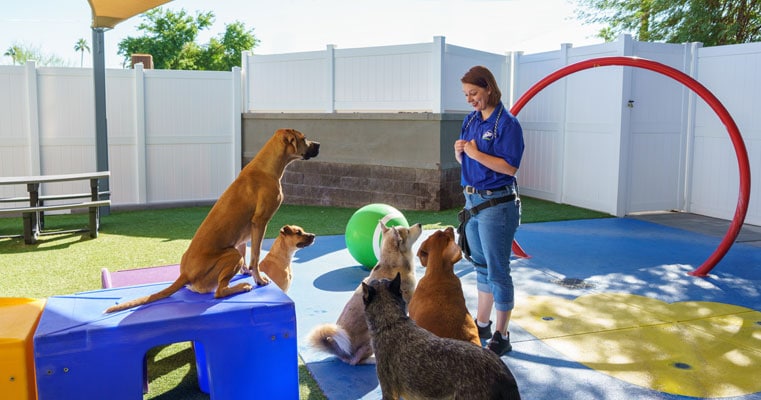Elevate Your Skills with Local Dog Training Charlotte Programs
Elevate Your Skills with Local Dog Training Charlotte Programs
Blog Article
Unlock Your Pet dog's Prospective: Proven Canine Training Techniques for Success
Effective pet training is a nuanced process that hinges on understanding canine behavior and employing medically backed strategies. By integrating positive support, establishing clear commands, and focusing on socializing, canine proprietors can cultivate an effective relationship with their family pets.
Understanding Pet Dog Behavior
Comprehending dog habits is crucial for efficient training and cultivating a positive connection between pet dogs and their proprietors. A detailed grasp of canine body language, articulations, and social communications is important for acknowledging their feelings and demands. Dogs interact largely through non-verbal cues; for instance, a wagging tail might indicate excitement, while pinned ears can indicate concern or entry.

Furthermore, environmental variables play a substantial function in shaping a dog's actions. Modifications in routine, brand-new surroundings, or the presence of unfamiliar people can result in tension or anxiety in pet dogs. Acknowledging these triggers enables owners to alleviate negative reactions and create proper training techniques.
Inevitably, a deep understanding of pet dog behavior lays the structure for successful training approaches, enhancing both behavior and the general bond between the pet dog and its owner. Dog training. This expertise is important for fostering a well-adjusted, delighted canine friend
Favorable Support Methods
Reliable training relies greatly on positive reinforcement strategies, which have been revealed to generate considerable outcomes in shaping preferred actions in dogs. This technique involves awarding a pet for exhibiting details behaviors, consequently increasing the probability that these actions will be repeated. Benefits can take numerous forms, including treats, praise, toys, or playtime, depending upon what inspires the specific canine.

It is vital to progressively eliminate rewards as the pet discovers the actions, transitioning to periodic reinforcement. This approach preserves the actions gradually while preventing dependence on constant benefits. By focusing on positive support, fitness instructors can cultivate a trusting connection with their pets, promoting a cooperative and healthy and balanced training atmosphere that boosts general obedience and efficiency.
Establishing Constant Commands
A basic aspect of effective pet training is the establishment of constant commands. Uniformity in commands is essential for efficient communication between the pet and the instructor. When commands are consistent, dogs discover to connect specific words with wanted behaviors, which increases the training process and boosts understanding.
To develop consistent commands, it is necessary that all family members utilize the very same terms and gestures. If one person utilizes "sit" while one more claims "rest down," it can develop complication for the pet. Select clear, distinct words for commands and guarantee everybody included in the pet dog's training sticks to these choices.
In addition, repetition is key. Reinforce commands through frequent practice, making sure that the pet dog gets adequate chances to react appropriately. When a pet efficiently complies with a command, instant positive reinforcement ought to follow. This could be in the kind of deals with, praise, or play, strengthening the link between the command and the action.
Lastly, hold your click to read horses. Developing constant commands takes time and initiative. With commitment and clearness, you will assist your canine develop a solid understanding of expectations, ultimately bring about a mannerly friend.
Socialization and Direct Exposure
Socializing a dog is important for cultivating a well-adjusted and certain companion. This procedure go involves revealing your canine to a selection of atmospheres, people, and various other animals to create their social skills and flexibility. Early socialization, preferably between the ages of three to fourteen weeks, is crucial, as it prepares for a canine's future actions.
During socializing, aim to provide positive experiences in various settings, such as parks, busy roads, and homes with other family pets. Introduce your dog to different stimulations, including noises, views, and smells, making certain that each encounter is fulfilling. This exposure assists alleviate fear and stress and anxiety, leading the way for a much more resistant dog.
Participating in regulated team play sessions with other canines can additionally improve social abilities, educating your pet suitable communications and borders. Constantly monitor your canine's comfort degree throughout these experiences, slowly increasing exposure as their confidence grows. Keep in mind, the goal is to produce a well-rounded pet that flourishes in diverse circumstances, advertising a harmonious relationship with both humans and other animals. Prioritizing socialization will considerably add to your pet's total joy and actions throughout their life.
Overcoming Common Educating Difficulties

An additional frequent problem is disturbance. Dogs may have a hard time to concentrate in busy or unknown find out this here setups. Progressively desensitize your canine to diversions by beginning training in a quiet environment and slowly presenting even more stimulations as they become skilled (dog training charlotte). Positive support strategies, such as treats and praise, can maintain motivation and focus.
Additionally, behavior issues like jumping or excessive barking can become aggravating. Address these by instructing alternate habits, such as sitting smoothly when greeting guests. Uniformity and perseverance are critical; reinforce preferred habits continually and stay clear of abuse, which can result in confusion.
Lastly, recognize that each pet is one-of-a-kind, and training timelines might vary. Tailor your strategy to your pet's private requirements, and seek specialist advice if needed. With determination and the best methods, getting over these obstacles can result in a well-trained, satisfied canine companion.
Verdict
Finally, unlocking a dog's possible requires an extensive strategy that integrates an understanding of canine behavior, the application of favorable reinforcement strategies, and the facility of consistent commands. Early socializing and exposure to varied atmospheres further improve a canine's flexibility and confidence. By addressing typical training challenges with tailored strategies and persistence, a harmonious and participating partnership between pet and handler can be cultivated, ultimately leading to a mannerly buddy qualified of flourishing in different situations.
Efficient pet training is a nuanced procedure that pivots on recognizing canine habits and using scientifically backed techniques.Recognizing dog habits is crucial for efficient training and cultivating a favorable relationship between pets and their owners.Effective training depends greatly on favorable support techniques, which have been revealed to generate substantial results in shaping preferred actions in pets. When commands are uniform, canines discover to link details words with desired behaviors, which speeds up the training procedure and improves understanding.
In verdict, opening a dog's potential necessitates an extensive technique that includes an understanding of canine actions, the application of favorable support strategies, and the facility of regular commands.
Report this page